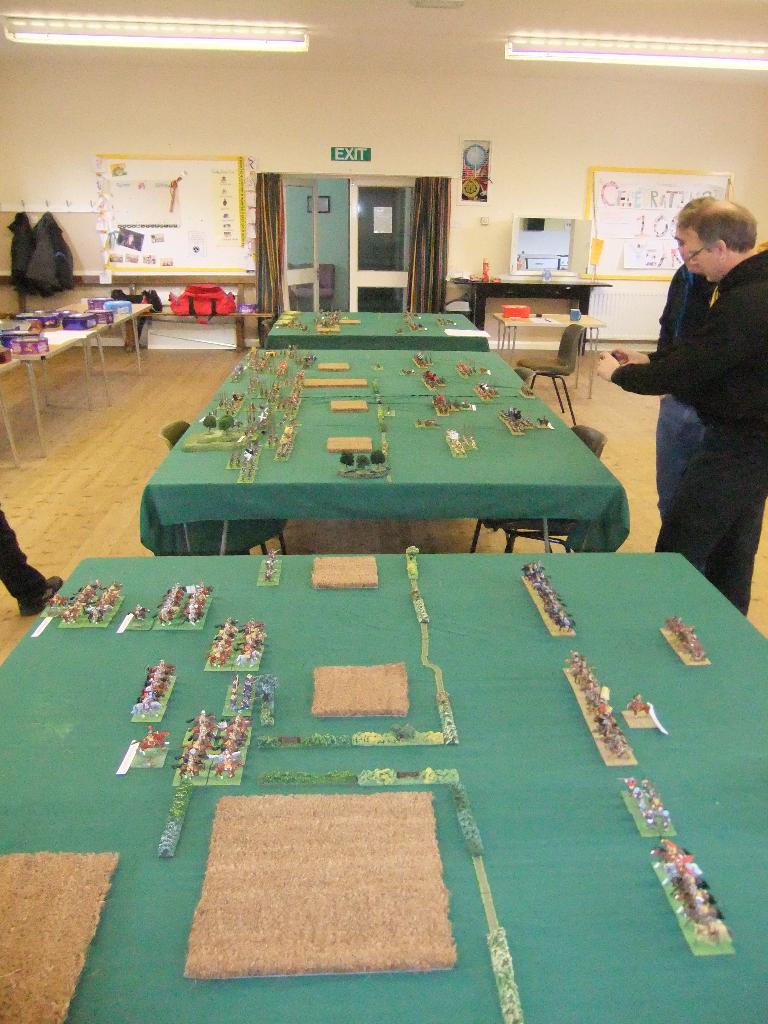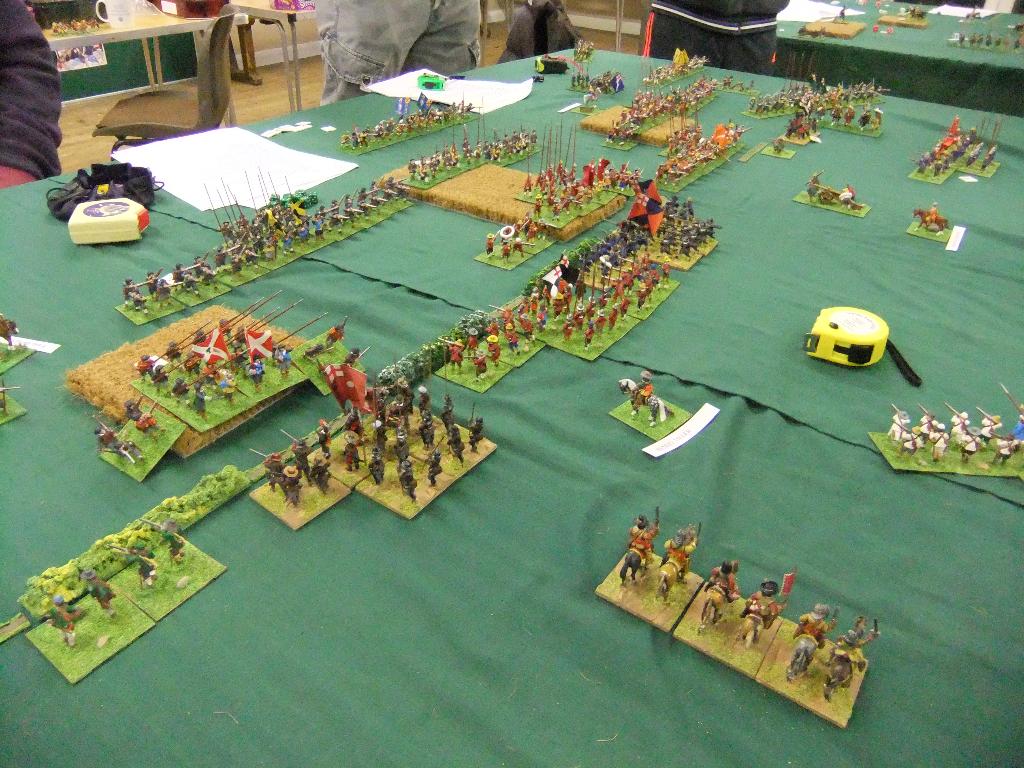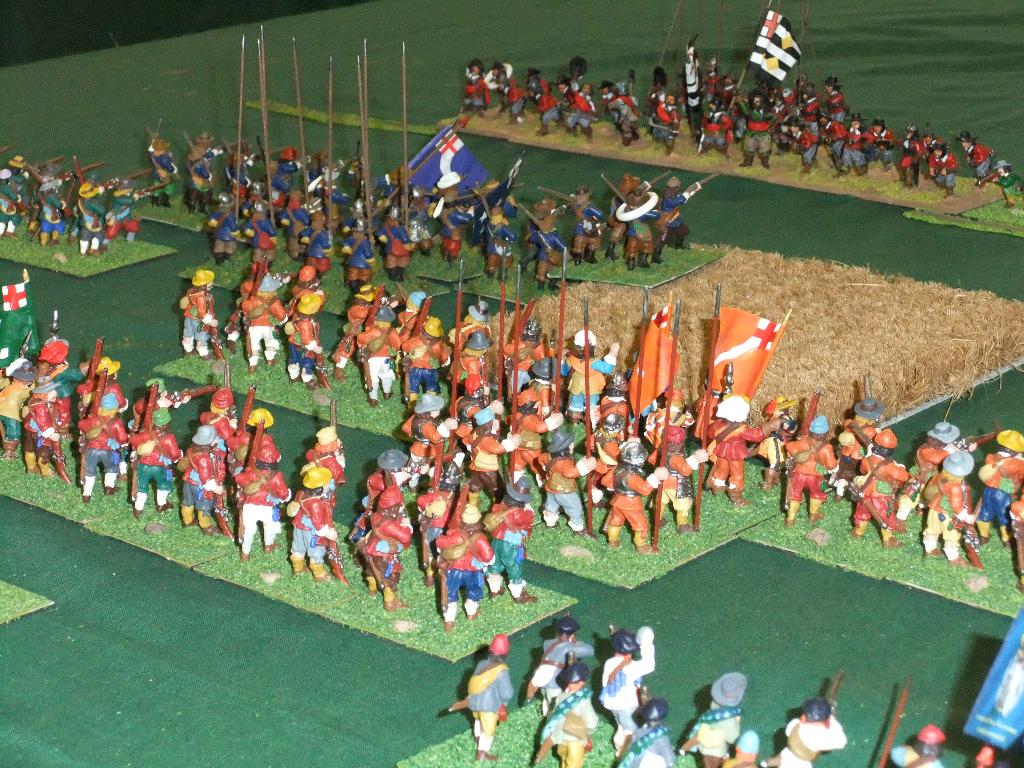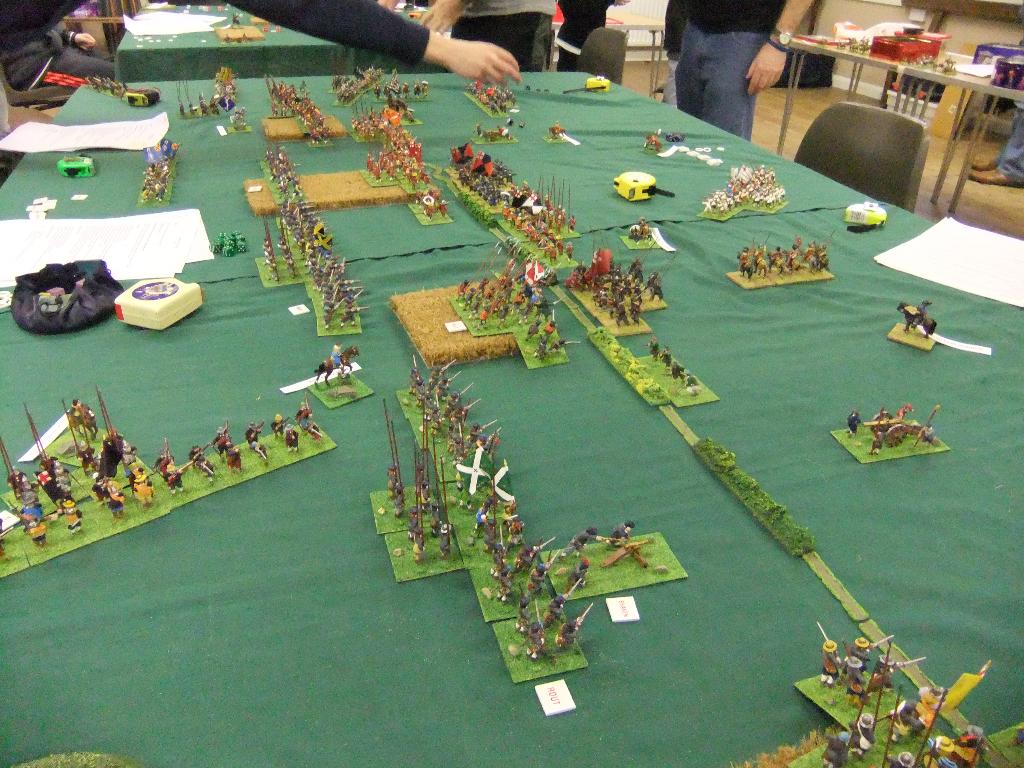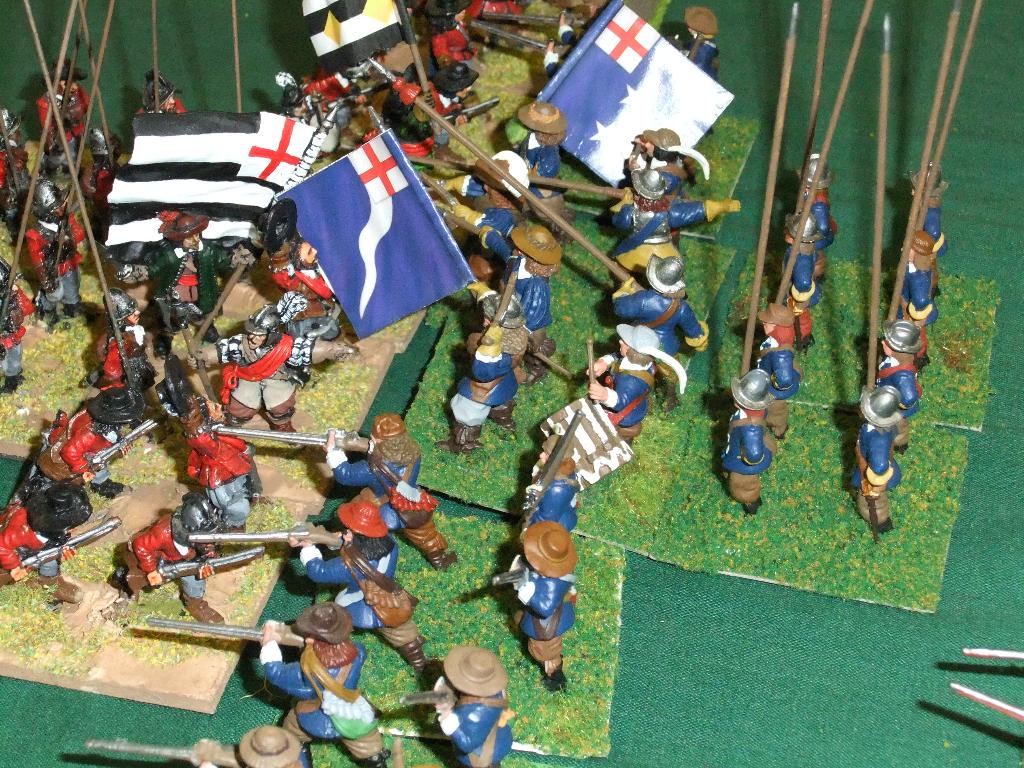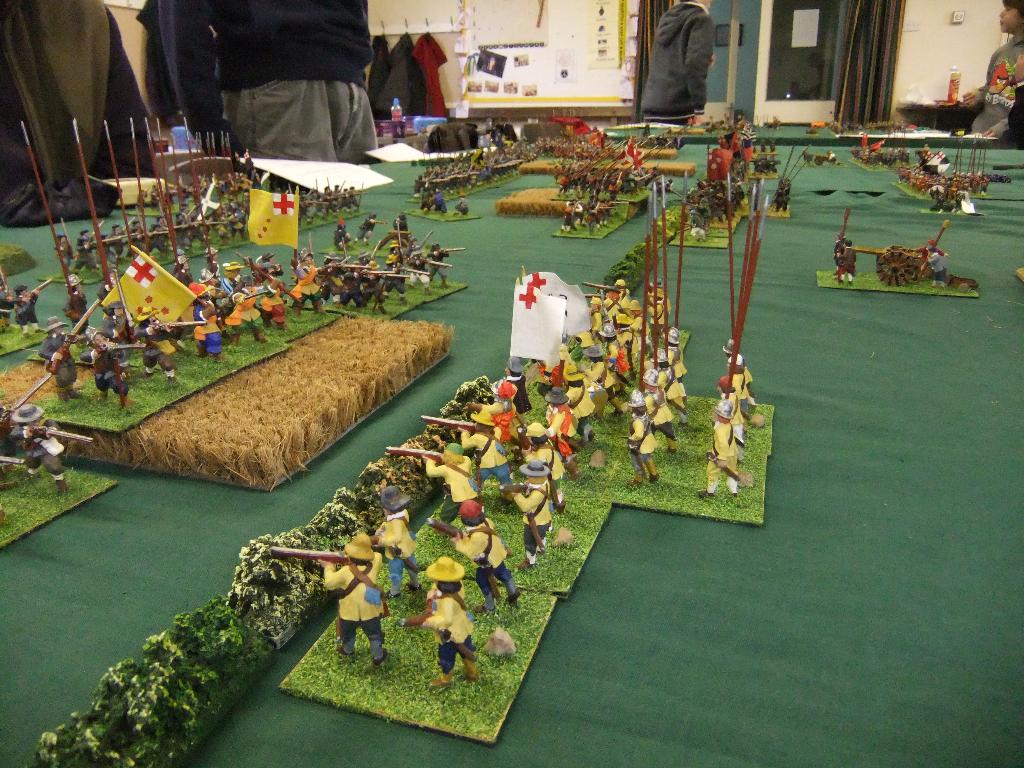Marston Moor (2nd July 1644)
The club at last had the opportunity of refighting this classic decisive battle of the English Civil War. All the ECW collections were brought together for this all-day clash organised by David S. who supplied most of the forces. The rules used were a simple set put together by the organiser and which worked surprisingly well for such a large battle.
The first difference to the actual battle was that the Scots/Parliamentarian generals where offered a choice of times to commence the battle, (including the historic supper time option), resulting in a decision to attack mid-afternoon when many of the Royalist foot had not yet arrived from York and, apart from their artillery, the bulk of their own forces were present and in place. The deployment of both armies was largely historical, with horse on both wings and foot in the centre. However with the lack of most of Newcastle's foot, the Royalist centre was very sparse and therefore no regiments had been moved towards the right wing, as this historically had not occurred until Newcastle's foot was largely available. While the horse on both sides were rated as average or above, the Scots foot which made up so much of of the Allied force was rated as poor, which while harsh was justified by comparison with the quality of most of the other foot present and by the historic fragility of some regiments at the battle. The Royalist right wing under Prince Rupert was patently outmatched by the forces opposing it under Cromwell, so proceeded to give ground, a highly risky manoeuvre in the face of the enemy, which could have lead to disaster and immediate defeat, but the gods of war were apparently with Rupert and thus Cromwell was initially frustrated. The Parliamentarian left wing under Thomas Fairfax not only had to advance over poor terrain, including the infamous drainage ditch, but was more equally matched in number by Goring's horse opposing it and rapidly found itself in trouble. However he over confidently sent some Scots horse in an attempt to flank the Royalist foot through an area known as the 'glen'. This was later to have fatal consequences. In the centre, as the mass of Parliamentarian and Scots foot surged forward, Newcastle urged the Royalist foot forward to meet them despite the disparity of numbers and thus stalled the advance in the area to the ditch. As a result much of the infantry action petered out into a musketry duel, with the Scots/Parliamentarian commanders hoping that their superior proportion of musketeers would whittle down the opposing Royalists who however were glad of any delay that might allow Newcastle's foot to arrive. Meanwhile what was to prove the decisive aspect of the battle was resolving itself between the forces of Thomas Fairfax and Goring who's ferocious assault rapidly lead to the scattering to the wind of the Parliamentarian horse. More fatally this exposed the flank of the Scots horse in the 'glen' who were thus charged and routed. At the sight of this the morale of the Scots foot on the right began to falter. Over on the Parliamentarian left, honours were fairly even, as while a Royalist regiment had defeated its opposite number in a push of pikes it was too weakened to follow up and could see its right flank was wide open to an attack from some Scots horse detached from Cromwell's wing. The battle was coming to its climax as while the remnants of Rupert's horse were desperately trying hold out on one wing, Goring's horse were sweeping around to attack the rapidly redeploying but already nervous Scots foot. So despite the final demise of Rupert's horse, (with Rupert having to hide in a bean field, as is claimed to have happened historically), plus the success of the Scots horse against the previously victorious Royalist foot regiment, it was suddenly all over. The expected success of Goring's horse against the right wing of the Scots/Parliamentarian foot had an extremely dramatic effect with first one then many regiments of foot taking to their heels in a domino effect which spread at least half way down the Parliamentarian line! Thus with at least a third of their foot in rout and many more wavering plus having few fresh cavalry and with Newcastle's foot turning up in ever increasing numbers it was clearly all up for the Allied army and at this point our re-fight drew to a close. Had this been the historic result of Marston Moor and had the subsequent events in the south and west gone as they did for the Royalists, then it is quite likely that Parliament would have had to come to terms so ending the Civil War. (Editors note: the real difference was the generalship of Newcastle & Goring in this refight - if only we'd commanded in 1644)
For more photos of both games see Gallery
|
|

